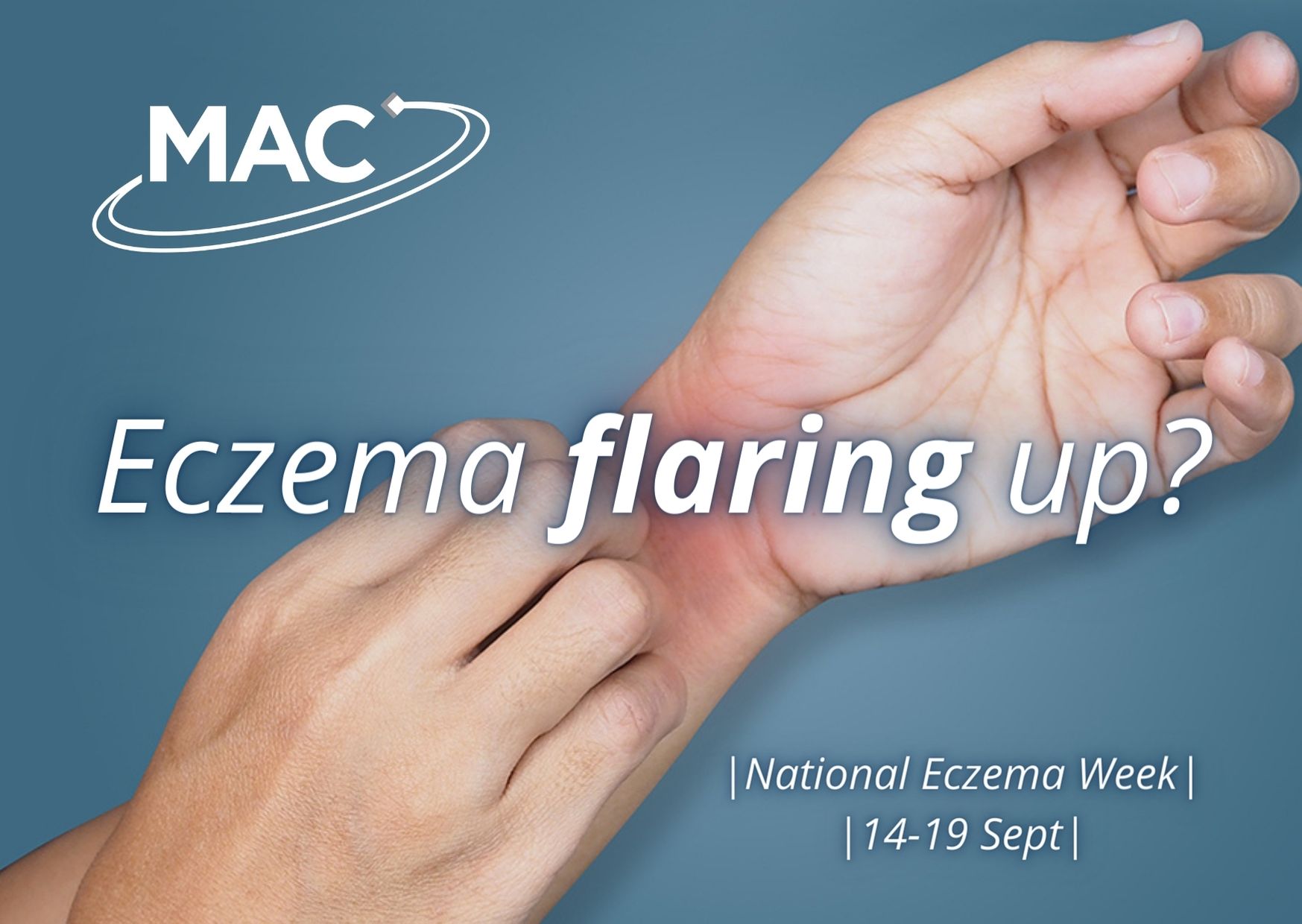Eczema, or Atopic Dermatitis, brings everyday irritation to around 1.6 million people in the UK. Although it is not currently known what causes eczema, certain triggers are known to bring on painful flare ups.
An eczema flare up is when the skin is at its most irritable, often appearing as incredibly itchy skin which can also appear dry and flaky.
1. Dry Skin
Perhaps most obviously, when skin can get too dry, the surface can become scaly and rough which can lead to an eczema flare-up.
Varying weather, low moisture in the air and prolonged contact with hot water can lead to skin drying up, so it’s always important to use moisturiser after being exposed to them.
2. Detergents
Despite their pleasant scents, laundry detergents can contain some harmful chemicals to replicate the fragrances which can trigger eczema flare ups. Surface-acting agents in detergent allow for the washing away of dirt and oil on clothes but can be irritating for those with sensitive skin.
Using a fragrance and dye-free detergent or rinsing your washing twice to eliminate the surface-acting agent build up can ease its effect on eczema.
3. Shampoo and Bubble Bath
Bathing products, like laundry detergents, containing fragrances can also cause painful eczema flare ups. Therefore, avoid shampoos and bubble baths containing alcohol and solvents that can be harsh on skin.
Eczema-friendly, sensitive bathing products can be purchased from most retailers to relive itchy skin.
4. Certain materials worn on the skin
Wool and synthetic fibres in clothing can also cause further problems for those suffering with eczema due to their habit of causing overheating, leading to sweating and irritation.
Lighter, breathable materials that are better for regulating body temperature such as cotton (ideally 100%) and silk are more suitable for eczema-prone skin.
5. Stress and/or hormonal changes
When we’re stressed, our bodies release a hormone called cortisol which can cause skin inflammation, leading to an eczema flare up. Meditation and exercising often can assist in stress reduction but you should consult your GP if you feel like you cannot control your stress on your own.
Likewise, a drop in oestrogen which can occur during menopause, pregnancy and before a menstrual cycle causes the skin to lose water thus leading to dryness. Although not completely avoidable, your GP may be able to advise you on way to regulate your hormones and keeping your skin extra moisturised during these times are always recommended.
With all the precautions eczema suffers must take from day-to-day life, we are striving towards finding the best possible treatment for varying severities of eczema in our upcoming clinical trials. If you have been diagnosed with eczema, you could be eligible for a trial. To register your interest and find out more information visit https://researchforyou.co.uk/atopic-dermatitis/




